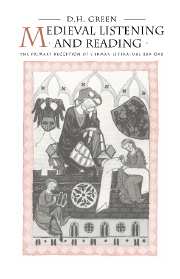2 - The historical background
Published online by Cambridge University Press: 04 September 2009
Summary
One of the ways in which the fall of the Roman Empire may be seen is to say that a literate culture was swamped by an oral one. The Romans shared their literacy with the Eastern Mediterranean area which had seen the birth of writing (they had acquired their script from a Western Greek script, whilst the Greeks had taken over and developed the Phoenicians' script), but in their expansion northwards, first in Italy, and then beyond the Alps, the Romans penetrated into an area dominated by an oral culture. One of the criteria by which Rome distinguished itself from barbarians was by its literacy. For Cato the superiority of the Romans to the barbarian tribes rested on the latters' ignorance of their own past which in the case of the Ligurians he attributed to their illiteracy, whilst it has also been argued that the primacy of written law with the Romans formed another dividing line between civilised man and the barbarian dependent on oral tradition alone. The expansion of the Roman Empire may have brought the written word to areas which had hitherto known only the spoken word, but this merely pushed back a stage the same horizontal distinction between Roman written culture and barbarian oral cultures. With the transition to the Middle Ages this horizontal contrast gave way to a vertical one: now the literate clergy formed educationally an upper class with a monopoly of Latin culture, whilst the layman's cultural values remained confined to oral tradition in the vernacular.
- Type
- Chapter
- Information
- Medieval Listening and ReadingThe Primary Reception of German Literature 800–1300, pp. 20 - 54Publisher: Cambridge University PressPrint publication year: 1994



